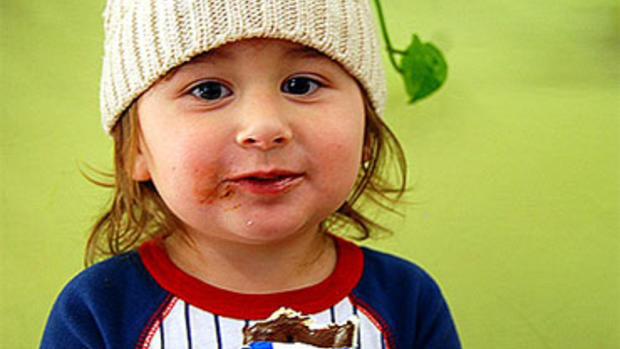Prosecutors begin presenting evidence in McStay murder case
SAN BERNARDINO, Calif. - After months of withholding details of the crime, prosecutors on Monday began presenting evidence in the case against a California man accused of killing a family of four and burying their bodies in shallow desert graves.
The DNA of defendant Charles "Chase" Merritt was found in the family's vehicle, and shortly after they were reported missing he spoke of them in the past tense, witnesses testified Monday.
The testimony came during a preliminary hearing in which a judge will decide whether Merritt, 58, must stand trial for the 2010 deaths of his business partner, Joseph McStay; McStay's wife, Summer; and the couple's two young sons.
Merritt, who was arrested last November, has pleaded not guilty to four murder charges.
Merritt's lawyer, Jimmy Mettias, said in an earlier interview that he expected prosecutors to allege his client used a sledgehammer to kill the McStays after a business dispute and covered up his tracks by painting the family's house and burying his victims and the weapon in the desert.
The McStay family vanished in February 2010, puzzling investigators who said there were no signs of forced entry at the home, nothing was missing, and the couple's credit cards and tens of thousands of dollars in bank accounts were untouched.
More than three years later, in November 2013, the remains of McStay, 40; his wife, Summer, 43; and their sons, 4-year-old Gianni and 3-year-old Joseph Jr., were found buried in the desert in San Bernardino County, 100 miles from their home in the San Diego County community of Fallbrook. Merritt was arrested a year later, in November 2014.
San Bernardino County sheriff's Detective Edward Bachman testified Monday that Merritt's DNA was a contributor to DNA found on the steering wheel and gear shift of Joseph McStay's Isuzu Trooper, which authorities said was impounded February 8, 2010, days after the family disappeared, near the U.S. border with Mexico.
San Diego County sheriff's homicide Detective Troy DuGal testified that he interviewed Merritt two days after receiving a missing person report for the McStay family.
DuGal said he and his partner noticed that Merritt spoke about the McStays in the past tense, saying Joseph McStay was one of his best friends.
"There were several times that Charles Merritt used past tense when he referred to Joseph or Summer McStay. There were also times when he used present tense but he frequently used past tense," DuGal said, adding that his partner challenged Merritt about his word choice and Merritt disregarded it.
San Bernardino County sheriff's Sgt. Jose Avila testified that he was sent in November 2013 to the desert location where the McStay family's remains were found after a motorcycle rider reported finding what appeared to be a human skull.
Two gravesites were found, Avila said, describing contents that included a child's skull and bones, a woman's fractured skull, a small child's blue pants with a diaper, a woman's pants and underwear, and a rusty, three-pound sledgehammer -- believed to have been used as a weapon in the killings.
Bachman testified that the remains included those of a man with a white extension cord wrapped around his neck, tied in a knot.
There was a large hole in the back left side of the man's skull, Bachman said. The skeletal remains were wrapped in a woven white blanket and tied with a strap.
Avila said two different sets of tire tracks led to the grave sites from a gas line road.
All four of the McStays were found to have been killed by blunt force trauma to the head, with 4-year-old Gianni suffering at least seven blows, San Bernardino County sheriff's Detective Edward Bachman testified.
None of the victims were wearing shoes. The woven blanket wrapped around Joseph McStay's skeletal remains appeared similar to a futon cover that was missing from the home after the family vanished, said Joseph Steers, another detective from San Bernardino County.
At the family's two-story home, there were towel racks but hardly any towels, he said. Investigators also found blue painter's tape on the wall and a paint tray as the McStays had recently been repainting the house, Steers said.
At the gravesites, paint was found on the sledgehammer and running sideways along a brassiere belonging to Summer McStay. Steers said that meant she was likely painting while lying on her side, or incapacitated as a drip fell.
Merritt's laywer, Jimmy Mettias, said earlier that nothing on the sledgehammer could be traced to Merritt, and he questioned prosecutors' ability to link his client to the crimes.
"We have serious issues with the state of the evidence," he said. "I could see where they chose, OK, we're going to go with this guy, but nothing that is going to prove his guilt."
Mettias said he expected prosecutors would say Merritt took money from McStay's business that builds indoor water features, prompting a confrontation between the men.
Mettias said his client had an alibi, but he would not reveal it before trial.
